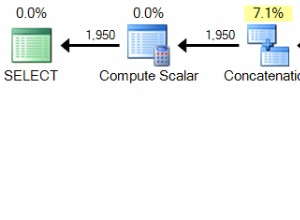Pominąłeś wszystkie klucze obce w nazwie książki.
Dlatego odpowiadam kompletnym, rozszerzonym zestawem definicji tabel, chodzi o klucze obce, prawda? Shure podałeś uproszczony przykład.
Problem do rozwiązania polegał na tym, że zapisy w reading_event_discussion musi dotyczyć tematów istniejących w tej książce:
drop table book cascade;
drop table book_theme;
drop table reading_event cascade;
drop table reading_event_discussion;
create table book (
name text primary key -- new, a must because it is FK in reading_event
);
insert into book (name) values ('game of thrones'),('Database design');
create table book_theme (
bookname text references book(name), -- new
themename text
);
insert into book_theme (bookname, themename) values
('game of thrones', 'ambition'), ('game of thrones', 'power');
create table reading_event (
i SERIAL primary key,
venue text,
bookread text references book(name) -- FK is new
);
insert into reading_event (venue, bookRead) VALUES
('Municipal Library', 'game of thrones');
-- this is the solution: extended reference check
create or replace function themecheck (i integer, th text) returns boolean as $$
select
(th in (select themename from book_theme bt
join reading_event re on i=re.i and re.bookRead=bt.bookname))
$$ language sql;
create table reading_event_discussion (
i integer references reading_event(i),
themeDiscussed text check (themecheck (i, themeDiscussed))
);
-- Test statements:
-- just check data
select * from reading_event;
-- this should be ok
insert into reading_event_discussion values (1,'ambition'),(1,'power');
-- this must be refused
insert into reading_event_discussion values (1,'databases');
Rozwiązaniem jest więc napisanie niestandardowej funkcji sprawdzania. Nie można go przenieść do innych systemów baz danych.
Można napisać tę funkcję w kilku językach (plpgsql, pltcl, ... ), ale funkcje SQL mogą być wbudowane w zapytanie i mogą być szybsze.




